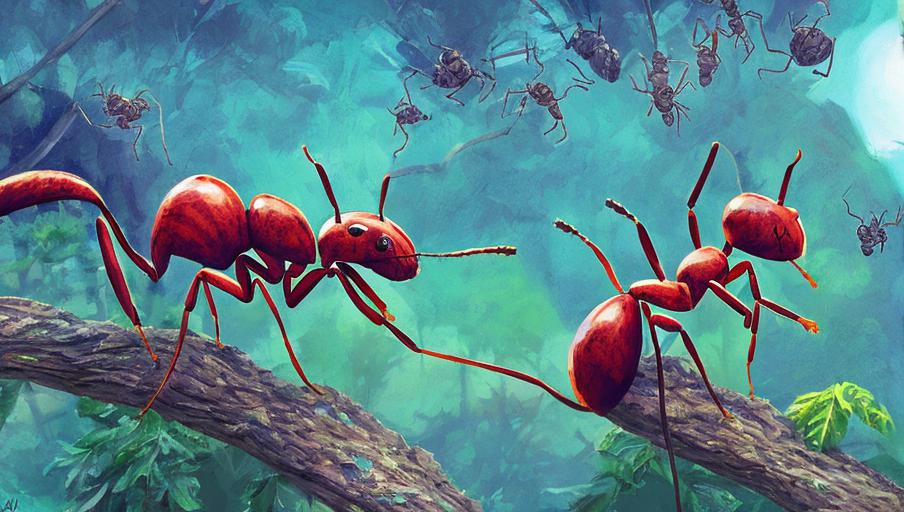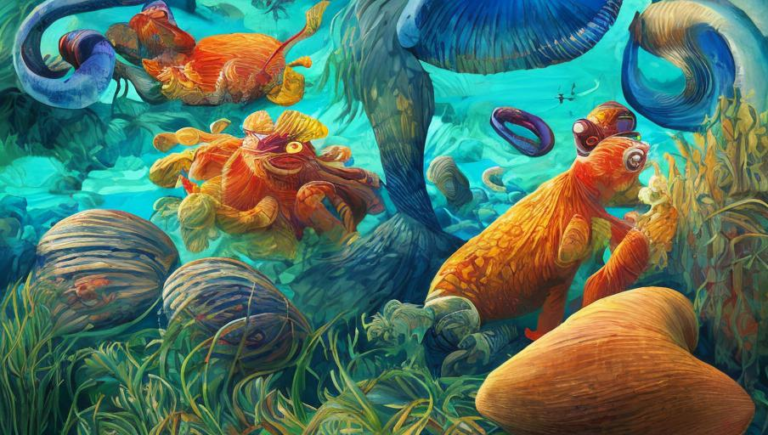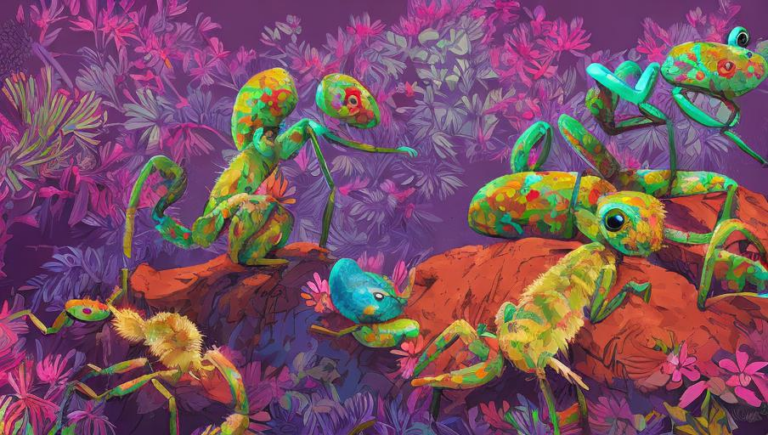Forming Colonies: The Life of Ants

Introduction to Ants
Ants are part of the insect family, and they are one of the most abundant creatures on the planet. They come in a variety of shapes and sizes, and they can be found almost everywhere on Earth. Ants are incredibly social, and they are capable of forming colonies with millions of other ants. They are hardworking and have intricate systems of organization that allow them to build their homes and find food. Ants have a fascinating life cycle, and their colonies are structured in a way that is both complex and efficient.
Ant Colonies
Ant colonies are made up of three different types of ants: workers, soldiers, and queens. The workers are in charge of gathering food, caring for the young, and building the nest. The soldiers are responsible for defending the nest from predators like spiders and birds. Finally, the queen is the leader of the colony, and she lays the eggs that will eventually become the new members of the colony. Each ant colony is led by a single queen, and she is the only one to reproduce. Ants communicate with each other through a series of chemical signals known as pheromones.
Nest Building and Foraging
Nest building is a big part of an ant colony’s life. An ant nest can be found in almost any environment, ranging from underground to high up in trees. The nest is designed to protect the colony from predators, and it can be made from a variety of materials such as dirt, rocks, and plants. Ants are also known for their foraging habits, and they will often venture out in search of food. They are capable of carrying up to fifty times their own body weight, so they can bring back a large amount of food for the colony.
The Life Cycle of an Ant
An ant starts its life as an egg, which is laid by the queen. After a few days, the egg hatches into a larva. The larva is fed by the workers in the colony, and it will eventually molt into a pupa. The pupa will then emerge as an adult ant. As an adult, the ant will then be assigned a job in the colony, such as a worker, soldier or queen. The life cycle of an ant is a remarkable process, and it is an essential part of a colony’s success.
The Importance of Ants
Ants play an important role in the environment, and their colonies are essential for a healthy ecosystem. Ants help to keep the soil aerated, which helps other plants to grow. They also help to break down organic matter, which helps to fertilize the soil. Ants are also important predators, as they help to keep populations of other insects in check. Finally, they also help to pollinate plants, which is essential for the health of the environment.
Conclusion
Ants are incredibly important to our environment, and they are fascinating creatures to study. They are incredibly social and are capable of forming massive colonies with millions of other ants. They have an intricate life cycle and a complex system of organization that allows them to build their nests and forage for food. Ants are also essential for a healthy ecosystem, as they help to keep the soil aerated, break down organic matter, and even pollinate plants. By learning more about ants, we can gain a better understanding of the importance of these creatures and their role in our environment.





